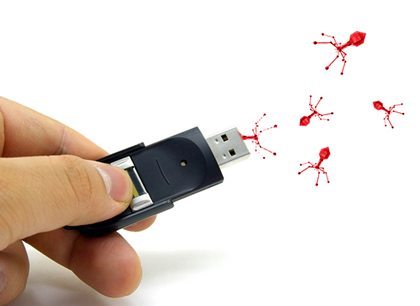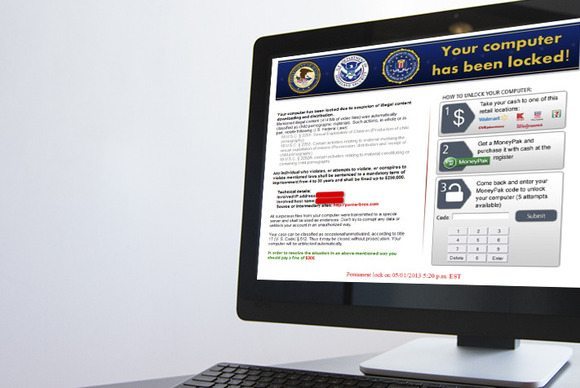eBay is yet another giant consumer brand that has fallen victim to a cyber attack. Like many of us, I raced to change my password when I heard the news break early Wednesday morning. Of course the news media and many eBay users assumed the worst had happened and that personal and financial information had been breached. Fortunately, the attack was limited to a corporate network and only a small amount of employee login credentials were breached. eBay’s PayPal business unit did not show evidence of user personal or financial information being exposed. Phew.
Given the frequency of these high profile breaches, it seems like only a matter of time before hackers are able to break into the networks of the most trusted consumer brands and financial institutions. Target experienced a massive breach late last year that many consumers are still dealing with today. High-end retailer Neiman Marcus experienced a breach as well. Larry Ponemon, chairman and founder of the Ponemon Institute which specializes in data-security issues, said “It shows that even the best of Internet sites are vulnerable to cyber attacks . . . you can’t stop this tidal wave.”
Yikes! What are consumers to do?! Even the perceived most secure websites, businesses and financial institutions are vulnerable to cyber attack. I think the best form of protection is to empower consumers to control when, how and where their credit or debit card data is used. If consumers can limit the use of, “turn off” or block the use of a card, they are empowered to protect themselves from any resulting damages from these cyber attacks.
FinovateSpring Best of Show winner Ondot Systems provides one of the most compelling solutions to help consumers take control of their payment cards. The Ondot solution lets consumers . . .
- Turn a credit card on or off
- Limit the use of a card to a specific retailer or spend category
- Limit card use to an area near them or to a specific geographic region
The eBay cyber attack highlights the consumer value of Ondot solution. Imagine that you were a victim of a data breach and that your credit card information may have been sold on the black market. Sadly, this is the case for millions of US consumers. The Ondot solution empowers you to prevent any fraudulent transactions should a fraudster purchase your data and attempt to buy things on or offline. For example, upon hearing about the breach you could easily turn off the card immediately giving you extra time to determine if it’s necessary to cancel the card. Or, if you limit card use by geo proximity to you, use of the card will be denied to any cyber criminal across the world attempting to purchase items. You are empowered to protect yourself from fraudulent payments BEFORE they even happen. That’s cool.
Ondot Systems does not provide a direct to consumer solution. They are actively pursuing relationships with the major payment processors and financial institutions to white label the technology. I’m wondering though if this technology is relevant enough that consumers could actually ask their bank card providers for it or be willing to switch to a card provider who has this technology deployed already. The Ondot solution could prove to be a strong differentiator that may attract many new customers to a bank’s credit card offering. With the increase in data breaches, I’m hoping my bank will provide this functionality soon. If not, I am open to learning more about who does offer this technology.
Ondot has the wind at its back now. However, this technology is not new and competitors have built similar solutions. From what I understand from my patent attorney friends, this technology is not particularly defensible for there are many ways to skin that technology cat. (Meow.) Ondot must build strategic partnerships with the largest payment processors first to grow market share and do it quickly. These processors will pave the way to deploying for small and mid tier banks.
Ondot’s big hurdle will be in how easily the solution is deployed at the bank. As we know, these smaller banks get heartburn if a solution integration requires a big internal commitment. However, it appears they have addressed this hurdle with seamless integration into the universally accepted payment standard and with deployment support. Once deployed, Ondot’s next challenge will be in how well they engage these banks in co-marketing the solution to the consumer. Many mid and lower tier banks run lean on marketing so the key here will be how to take advantage of current marketing channels to drive adoption. However, I have a feeling consumer word of mouth may be the most effective channel.
Ondot is a formidable competitor and is well positioned to be the market leader. Now it’s about how well they execute.
Given the frequency of these high profile breaches, it seems like only a matter of time before hackers are able to break into the networks of the most trusted consumer brands and financial institutions. Target experienced a massive breach late last year that many consumers are still dealing with today. High-end retailer Neiman Marcus experienced a breach as well. Larry Ponemon, chairman and founder of the Ponemon Institute which specializes in data-security issues, said “It shows that even the best of Internet sites are vulnerable to cyber attacks . . . you can’t stop this tidal wave.”
Yikes! What are consumers to do?! Even the perceived most secure websites, businesses and financial institutions are vulnerable to cyber attack. I think the best form of protection is to empower consumers to control when, how and where their credit or debit card data is used. If consumers can limit the use of, “turn off” or block the use of a card, they are empowered to protect themselves from any resulting damages from these cyber attacks.
FinovateSpring Best of Show winner Ondot Systems provides one of the most compelling solutions to help consumers take control of their payment cards. The Ondot solution lets consumers . . .
- Turn a credit card on or off
- Limit the use of a card to a specific retailer or spend category
- Limit card use to an area near them or to a specific geographic region
The eBay cyber attack highlights the consumer value of Ondot solution. Imagine that you were a victim of a data breach and that your credit card information may have been sold on the black market. Sadly, this is the case for millions of US consumers. The Ondot solution empowers you to prevent any fraudulent transactions should a fraudster purchase your data and attempt to buy things on or offline. For example, upon hearing about the breach you could easily turn off the card immediately giving you extra time to determine if it’s necessary to cancel the card. Or, if you limit card use by geo proximity to you, use of the card will be denied to any cyber criminal across the world attempting to purchase items. You are empowered to protect yourself from fraudulent payments BEFORE they even happen. That’s cool.
Ondot Systems does not provide a direct to consumer solution. They are actively pursuing relationships with the major payment processors and financial institutions to white label the technology. I’m wondering though if this technology is relevant enough that consumers could actually ask their bank card providers for it or be willing to switch to a card provider who has this technology deployed already. The Ondot solution could prove to be a strong differentiator that may attract many new customers to a bank’s credit card offering. With the increase in data breaches, I’m hoping my bank will provide this functionality soon. If not, I am open to learning more about who does offer this technology.
Ondot has the wind at its back now. However, this technology is not new and competitors have built similar solutions. From what I understand from my patent attorney friends, this technology is not particularly defensible for there are many ways to skin that technology cat. (Meow.) Ondot must build strategic partnerships with the largest payment processors first to grow market share and do it quickly. These processors will pave the way to deploying for small and mid tier banks.
Ondot’s big hurdle will be in how easily the solution is deployed at the bank. As we know, these smaller banks get heartburn if a solution integration requires a big internal commitment. However, it appears they have addressed this hurdle with seamless integration into the universally accepted payment standard and with deployment support. Once deployed, Ondot’s next challenge will be in how well they engage these banks in co-marketing the solution to the consumer. Many mid and lower tier banks run lean on marketing so the key here will be how to take advantage of current marketing channels to drive adoption. However, I have a feeling consumer word of mouth may be the most effective channel.
Ondot is a formidable competitor and is well positioned to be the market leader. Now it’s about how well they execute.





